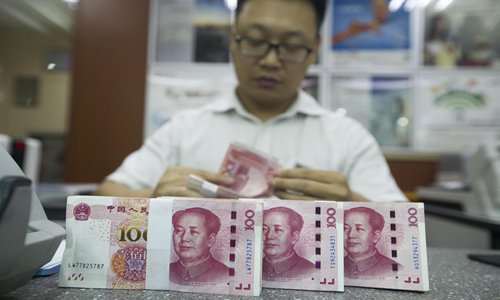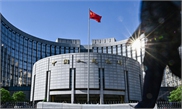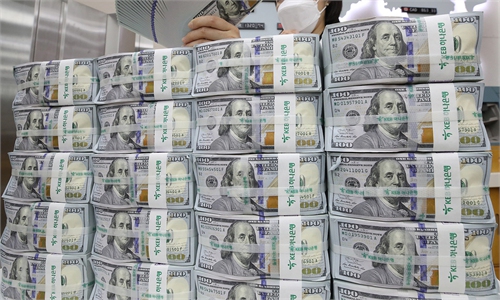SOURCE / MARKETS
Overseas investors’ holdings of yuan bonds, stocks up 47%

An employee counts banknotes at a bank in Taiyuan, North China's Shanxi Province on July 19. Photo: VCG
Overseas investors have been increasing their holdings of Chinese bonds and stocks by 47 percent in the first three quarters in 2020, demonstrating unabated confidence in China's financial market, official data showed Friday.
In the first nine months of this year, two-way cross-border investment remains robust, with cross-border capital flow stable, Wang Chunying, a spokesperson for the State Administration of Foreign Exchange (SAFE), said at a press briefing on Friday.
Despite the global pandemic, foreign direct investment in China grew 2.5 percent to $103.3 billion over the nine-month period, while foreign investors' holdings of yuan bonds and stocks reached $132.1 billion, soaring 47 percent year-on-year.
Over the period, the country's outbound direct investment stood at $78.9 billion, down 2.6 percent year-on-year, according to data from the SAFE.
Wang said that China's continuous move to promote a two-way financial market opening-up, as well as measures to improve the convenience of trade and investment, builds a sound policy environment for a balanced two-way flow of cross-border capitals.
"Next, the SAFE will continue to promote two-way capital market opening-up to better serve the real economy," Wang said. She said the administration is studying pilot reforms of Qualifying Foreign Law Practice in a bid to further expand the scope of investment, streamline registration procedures and make more convenient fund transfers.
She said that the SAFE will release a new round of the Qualified Domestic Institutional Investor quota.
In addition, the Chinese authorities are exploring more channels to promote cross-border investment, with relaxing restrictions of domestic companies and individuals' investment overseas in consideration, Wang said.
Mainly due to interest rate and asset price changes, the country's foreign exchange reserves reached $3.14 trillion by the end of September, up $34.6 billion from the end of 2019, according to Wang.


